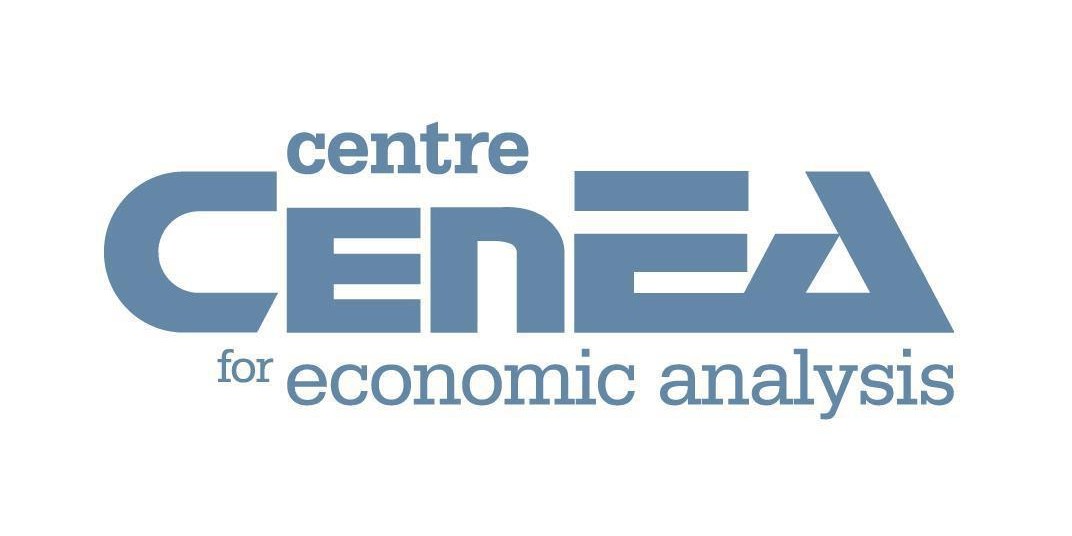Author: webadmin
Household exposure to financial risks: the first wave of impact from COVID-19 on the economy

The full scale of the socio-economic impact of COVID-19 outbreak is incalculable today, given the uncertainty of lockdown duration and the severity of pandemic-driven slowdown in the international economy. Still, it is possible to analyze the direct implications of the lockdown, self-isolation and quarantine measures introduced over the last few weeks in an attempt to formulate a preliminary assessment of how the outbreak will affect households in economic terms. The priority challenge now is, of course, to contain the spread of coronavirus, but as we identify the scale of potential economic consequences associated with the pandemic, we may help calibrate the safeguards that could protect households from the impact of the imminent economic slowdown.
In this commentary paper, based on the Household Budget Survey (HBS) data, the percentage of households (HHs) whose members are most at risk of losing their job or compromising their income due to the first wave of economic consequences of the pandemic is taken as a measure of economic impact of COVID-19 outbreak. The analysis looks into the population of people who are economically active (through employment or self-employment) in those sectors of the economy which are most exposed to the effects of the lockdown. According to our findings, 17.2 percent of the HHs in Poland are at risk of a loss of income due to the first wave of economic consequences of the pandemic, and for 5.2 percent of the HHs this risk can be described as particularly high. When we focus on the HHs with at least one person active on the labor market, the parameters are 24.7 percent and 7.4 percent, respectively.
The full report is available here.
The results presented in the report are also available in Microsoft Excel.
Financial and non-financial private transfers from close ones: beyond family and kinship

Internally-defined ties such as friendship, trust, or closeness might enhance private transfers. The present study examines the role of these ties on top of the impact of genetic relatedness and legal family relations using families with varied access to filial support as a source of heterogeneity. We investigate, in addition to family support, financial and non-financial transfers received from unrelated individuals by mature adults in childless, dispersed (that is, with an adult child living at a significant distance from parents), and local families using the Survey on Health, Ageing and Retirement in Europe. We find that the structure of support given to mature adults indeed depends on internally-defined ties that are independent from family ties, controlling for other relevant factors. The positive impact on informal support of internally-defined ties concerns particularly, but is not limited to, non-financial support.
Family policies in Poland – addressing one of the lowest fertility rates in Europe

The brief opens a series of FROGEE Policy Briefs aimed at providing overviews and the popularization of economic research related to gender equality issues. The current brief introduces the general rationale behind fertility decisions and policy interventions. It summarizes the economic literature on the effects of different types of policy interventions on enhancing childbearing. A well-documented phenomenon in developed countries is that fertility declines with income levels and as countries become richer, fertility rates fall over time. This negative fertility-income relationship is mainly due to two distinct trade-offs faced by individuals. The quality-quantity trade-off manifests itself in the tendency of well-off individuals to choose to invest more in a child’s quality and therefore forgo quantity. Another trade-off arises from the fact that raising children takes time, which confronts parenthood with people’s career opportunities. The brief continues by summarizing economic research on the effectiveness of various pronatalist policies. It appears that the most effective ones are exactly those which aim at the elimination of the discussed trade-offs. In particular, policies which are able to free the time of potential parents or combine parenthood with career, appear to be most promising.
In the last two decades family has been at the center of social policy in Poland. The policy approach prior to 2016 focused on extending parental leave policies, improvements in formal childcare and adjusting employment incentives for parents and addressing gender inequality on the labor market. Family policy has taken a turn under the current government by focusing on a generous new benefit for families with children. Despite numerous generous policies, the fertility rate in Poland is still one of the lowest in Europe. This calls for an appraisal of the entire family-focused package and designing a comprehensive approach that includes policies to address gender imbalances on the labor market, as well as a more equal division of family responsibilities between men and women.
You can also find country reports from Belarus, Georgia, Latvia, Russia and Ukraine here.
Income Inequality in Transition. New Results for Poland Combining Survey and Tax Return Data

We re-examine the evolution of income inequality in Poland in the process of post-socialist transition focusing on the previously neglected problem of under-coverage of top incomes in household survey data. Multiple statistical techniques (Pareto imputation, survey reweighting, and microsimulation methods) are applied to combined household survey and tax return data in order to obtain top-corrected inequality estimates. We find that the top-corrected Gini coefficient grew in Poland by 14-26% more compared to the unadjusted survey-based estimates. This implies that over the last three decades Poland has become one of the most unequal European countries among those for which top-corrected inequality estimates exist. The highest-income earners benefited the most during the post-socialist transformation: the annual rate of income growth for the top 5% of the population exceeded 3.5%, while the median income grew on average by about 2.5% per year. This brief summarizes the results presented in Brzezinski et al. (2019).
From Partial to Full Universality: The Family 500+ Programme in Poland and Its Labour Supply Implications

The implementation of the ‘Family 500+’ programme in April 2016 represented a significant shift in public support for families with children in Poland. The programme guaranteed 500 PLN/month (approx. 120 euros) for each second and subsequent child in the family and the same amount for the first child in families with incomes below a specified threshold. As of July 2019, the benefit has been made fully universal for all children aged 0-17, an extension which nearly doubled its total cost and benefited primarily middle and higher income households. We examine the labour market implications of both the initial design and its recent fully universal version. Using the discrete choice labour supply model, we show that the initial Family 500+ benefits generated strong labour supply disincentives and were expected to result in the withdrawal of between 160-200 thousand women from the labour market. The recent removal of the means test is likely to nullify this negative effect, leading to an approximately neutral impact on labour supply. We argue that when spending over 4% of GDP on families with children, it should be possible to design a more comprehensive system of support, which would be more effective in reaching the joint objectives of low child poverty and high female employment combined with higher fertility rates.
Open Positions

For more information on the offer please see the attached document.
05.12.2019: CenEA’s Director, Michal Myck, to speak at an EBRD conference on “Equality and inclusion in the work place: best practices from CEE”

The EBRD, in collaboration with Google, organises a half-day conference on Thursday 5 December 2019 to discuss the future of equality and inclusion in the workplace and to share best practices from leading companies in Central and Eastern Europe.
The regional conference builds on the current business momentum to address emerging economic inclusion in Central and Eastern Europe and explore solutions driven by the private sector under equal opportunities-related policies and practices across operations, including recruitment, outreach, training, retention, safety, promotion, advancement, family leave, as well as skills development strategies.
The landscape around diversity and inclusion in the workplace has changed significantly given demographics change and the rising awareness on fairness in the workplace. Employers are beginning to understand the importance of creating an equal and diverse workplace for attracting and retaining talent. Education around diversity and inclusion is no longer a “check-the-box” item, but a vital aspect of company culture.
An increasing number of millennials believe that organizations have a moral obligation to give back to the society in ways that create an inclusive environment for everyone to participate and thrive, regardless of their gender, sexual orientation, gender identity, race, ethnicity or disability. What does this mean for the future landscape of the workplace? What can companies do to meet the demand of the new workforce?
The session aims at building the understanding of the audience in the following topics:
- Acknowledging progress on gender equality-based equal opportunities policies and practices and taking stock of emerging challenges (childcare provision, women on boards);
- Recognising the importance of wider diversity and equality in the future workplace landscape, especially for LGBTI and people with disabilities;
- Discussing the key issues facing companies around equality and diversity and the relevant advice to address them;
- Demonstrating the value of creating a diverse and equal workplace to facilitate peer-learning through sharing case studies and training opportunities.
More information about the event can be found here.
Reevaluating distributional consequences of the transition to market economy in Poland: new results from combined household survey and tax return data

We use Pareto imputation, survey reweighting, and microsimulation methods applied to combined household survey and tax return data to reevaluate distributional consequences of the post-socialist transition in Poland. Our approach results in the first estimates of top-corrected inequality trends for real equivalized disposable incomes over the years 1994-2015. We find that the top-corrected Gini coefficient grew by 14-26% more compared to the unadjusted survey-based estimates. This implies that over the last three decades Poland has become one of the most unequal European countries among those for which top-corrected inequality estimates exist. The highest-income earners benefited the most during the post-socialist transformation: the annual rate of income growth for the top 5% of the population exceeded 3.5%, while the median income grew by about 2.5%.
Polityka podatkowo-świadczeniowa rządu Zjednoczonej Prawicy: program wyborczy i jego realizacja w latach 2015-2019

Niniejszy Raport stanowi rozszerzenie i aktualizację wyników przedstawionych w publikacji z dn. 12.04.2019, w której podsumowano wpływ rozwiązań podatkowo-świadczeniowych rządu Zjednoczonej Prawicy uwzględniając reformy, które weszły lub miały wejść w życie do lipca 2019 r. W ostatnich miesiącach do tego pakietu reform dołączyły kolejne rozwiązania, które obowiązywać zaczęły przed końcem VIII kadencji Sejmu. Rozwiązania te znacząco wpłyną na sytuację gospodarstw domowych, jednocześnie stanowiąc dodatkowy koszt lub ubytek dochodów dla sektora finansów publicznych. Biorąc pod uwagę wyłącznie rozwiązania, które rząd Zjednoczonej Prawicy wprowadził na stałe do polskiego systemu podatkowo- świadczeniowego, korzyści dla gospodarstw domowych w ujęciu rocznym wynoszą 47,7 mld zł, co odpowiada 2,1% PKB, choć należy podkreślić, że niemal 70% tej kwoty – 33,5 mld zł – stanowią efekty rozwiązań, które weszły w życie dopiero w drugiej połowie 2019 r. i które sektor finansów publicznych w pełni odczuje dopiero w 2020 r.
Raport jest dostępny tutaj.
Informacja prasowa: “Obietnice i ich realizacje: więcej świadczeń, mniej korzyści podatkowych”
Kontakt dla mediów:
CenEA
dr. hab. Michał Myck
tel. 91 831 40 29
mmyck@cenea.org.pl
Projects funded by the Polish National Science Centre (NCN)

Material Conditions and Older Age Wellbeing in Germany and Poland: Institutional and Regional Variation in Individual Risks and Insurance Mechanisms
Duration: February 2020 – February 2022
Principal Investigators: Michał Myck (CenEA) & Martina Brandt (TU Dortmund)
Project information: NCN website, AGE-WELL project website
Labour market policy and pre-retirement employment dynamics
Duration: January 2019 – January 2022
Principal Investigator: Michał Myck
Project information: NCN website
Administrative changes as tools in identification of causes behind disparities in regional development.
Duration: January 2017 – April 2019
Principal Investigator: Michał Myck
Project information: NCN website
Main publications:
“Implications of the Polish 1999 administrative reform for regional socio-economic development” in Economics of Transition and Institutional Change
“Lights along the frontier: convergence of economic activity in the proximity of the Polish-German border, 1992–2012” in Applied Economics
A quarter century later: long term consequences of the “shock therapy” at individual level.
Duration: January 2016 – July 2019
Principal Investigator: Michał Myck
Project information: NCN website
Main publications:
“Shocked by therapy? Unemployment in the first years of the socio‐economic transition in Poland and its long‐term consequences” in The Economics of Transition
Examining the life-cycle theory of consumption: expenditure patterns of Polish households before and after retirement.
Duration: February 2013 – December 2014
Principal Investigator: Michał Myck
Project information: NCN website
Main publications:
“The Effect of Public Pension Wealth on Saving and Expenditure” in American Economic Journal: Economic Policy
“Who gets to look nice and who gets to play? Effects of child gender on household expenditures” in Review of Economics of the Household
Stability of labour supply elasticity in the context of high wage growth dynamics and important labour tax reforms in Poland 2005-2009
Duration: May 2011 – February 2014
Principal Investigator: Michał Myck
Project information: NCN website
Main publications:
“For some mothers more than others” in The Economics of Transition
“Financial incentives to work in the context of a complex reform package and growing wages: the Polish experience 2005-2011” in Baltic Journal of Economics

